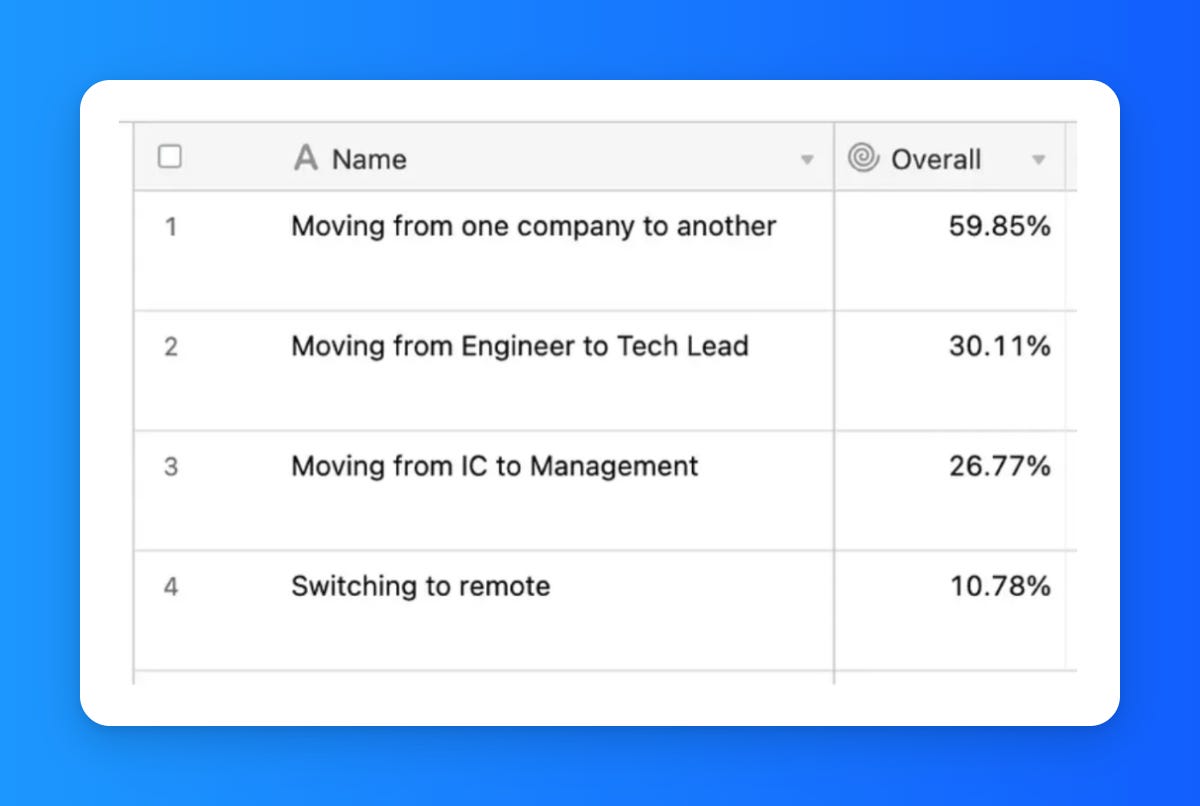When to Quit your Job 🚪
The main reasons to move on, and the signs you should pay attention to.
A couple of months ago we ran a comprehensive survey about the state of engineering careers.
We surveyed hundreds of developers, managers and tech leaders on topics like their favorite trends, professional growth, feelings about their current job, and more.
At some point in the survey we asked a simple question: are you thinking about changing jobs?
Replies are telling.
Only 27% of respondents replied that they plan to stay at their current company for the foreseeable future, while ~50% were either in the process of moving or might move in the next 6 months.
In March 2021, in the aftermath of the first year of COVID, Microsoft famously released an in-depth survey about hybrid work. They found that 41% of employees were considering leaving their current employer that year — almost double the figure reported in previous years.
This event was dubbed the great resignation and, if anything, it only seems to get worse.
Another poll run by Randstad later that year found that 69% of UK workers were ready to move to a new job in the following two months.
In the tech space, it also doesn’t help that most news people hear these days is about layoffs.
Why do people quit their job? And when should you do so?
In the past couple of weeks we had a thorough conversation about this on the Refactoring community. People, from veterans to freshmen, shared their personal stories, mental models, and everything that helped them decide to jump ship.
It turns out the reasons why people quit are few and well known. What is hard, instead, is recognizing them. Picking up the clues and acting on them.
That’s because, for the vast majority of people, quitting is hard — it is the most stressful time of their career 👇
People don’t change jobs because they like to — they do because they find abundant, impossible-to-ignore evidence that they should.
This article explores this topic from two main angles:
🚪 Why you should quit — the main reasons you should leave your job.
🔍 Picking up the clues — the signs you should pay attention to.
The goal is to equip you with ideas and mental models that can help you make the right call when the time comes.
This is a very personal topic, and in the article you will find many contributions from the community. I am deeply grateful to the many people who decided to share their stories.
I did my best to include the best ones and do them justice.
Let’s go! 👇





